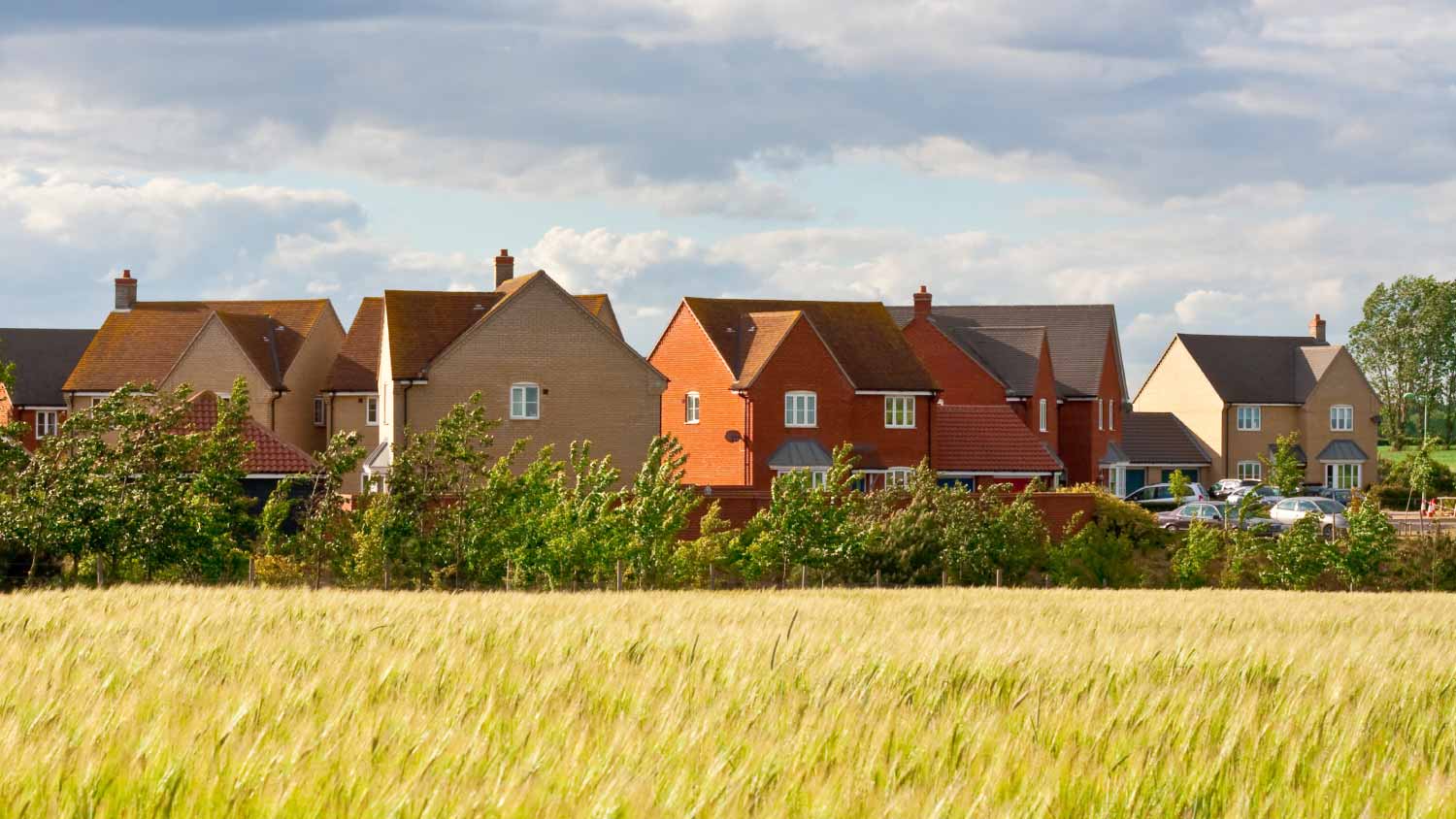7 Tips for Building a House and Ensuring a Successful Build
Design a space that works for your family’s life and personality


If you’re considering building a home, you have the opportunity to build a home that meets your unique needs. It also means that you have a lot to think about, from proper planning and permitting to layout and future-proofing to ensure your home remains a haven for decades to come. In this guide, we’ll share some tips for building a new house that will help make the process go smoothly, and set you up for new-construction success.
1. Get Proper Permits
First thing’s first: you always need to consider how to permit your new home properly. Every municipality in the country handles building permits differently, and you need to follow the appropriate avenues to make sure your contractor builds your home legally; if you fail to get all of the proper permits, you could face heavy fines, and you might be forced to tear down what you have built and start over.
Below are just some of the items for which you will typically need building permits:
Pouring a foundation
General construction
Connecting to utilities
Installing wiring and plumbing
Installing home systems, like heating and cooling
Depending on where you live, your building department might grant all of these in one new construction permit, while others could require individual permits. In either case, always make sure you have a general contractor or custom home builder get the permits for you.
2. Choose Your Foundation Carefully
The foundation is one of the most crucial parts of new construction. Not only does it dictate the layout and footprint of your house, but it also provides level support for all other building materials. You have four main options for your foundation type:
Basement
Crawl space
Pier and beam
Concrete slab
The foundation you choose will determine how your utilities run through your home, whether or not you have an underhome area for storage or added living space, and even the energy efficiency of your house.
Generally speaking, slab foundations are more common in warmer climates where the foundation doesn’t need to sit below a frost line, but you will have options in many cases. Speak with your builder about the pros and cons of each, and which foundation will serve your project best.
3. Be Mindful of HOA and Village Restrictions

If you’re building in a village or a homeowner’s association (HOA), your construction project might be subject to restrictions or regulations. You will need to plan around these from the get-go to avoid roadblocks once you break ground.
Below are some common restrictions you might see if you’re building in an HOA or village:
Home footprint restrictions
Exterior building materials must conform to other homes in the area
HOA-approved contractors must carry out all construction
Day and time restrictions for construction work or noise
Architectural design
Environmental impact of the project
Fencing requirements or restrictions
Some HOAs have almost no restrictions, while others might even dictate what color your front door can be. Always be mindful of the rules and regulations in your area, and conform to them to avoid problems.
4. Hire the Right Builder
Constructing an entire home is a complicated process, and it’s one that demands help from a qualified and experienced professional who knows how to build a house the right way.
You can and should get multiple quotes for your project, but it’s crucial that you hire the right builder for the job to avoid headaches down the line, rather than go with the most affordable option.
Completing a project without a permit could result in major fines or having to tear it down and start over. A reputable contractor can pull the necessary permits for you prior to starting a project.
An experienced builder—especially one with experience in your particular area—will understand and conform to local building codes, follow proper permitting procedures, build a home that will stand up to any severe weather or natural disaster in your area, and use high-quality building materials that prolong the life of your house, and make sure that it’s properly insulated for the climate in your area.
5. Understand Your Budget

The cost to build a house will range from around $115,000 to $500,000 in most cases, and your total could fall under $20,000 or close to $1,000,000, depending on a myriad of factors. It’s important that you understand your budget from the beginning so that you don’t plan on spending $300,000 and end up with a price tag that’s double that.
Your first instinct should be to build the house you want to live in for years, but always come back to your budget when deciding whether you should upgrade some portion of the build or cut back. Consider making a list of priorities to help you make the tough decisions of where to cut the budget and where to splurge.
6. Plan for the Future
Future-proofing your house is a big part of building something that will not only serve you for the foreseeable future, but also fetch a fair price tag if and when you go to sell. There are few things more frustrating—and expensive—than realizing you need to expand your recently constructed home because of poor planning.
Below are some things to consider to avoid problems or additional work down the road:
Always include at least three bedrooms. You might not need so many, but having fewer is considered a “functional obsolescence.” If you go to sell, buyers might pass on your home specifically because of the bedroom count.
Always include two or more bathrooms. Again, having just one bathroom is a functional obsolescence, even though the average family size is declining. This can be another make-or-break when selling your home down the road.
Consider making your home green. The construction industry is trending toward green building practices. Consider incorporating these now to make your home more relevant in the future, too.
Add extra utilities. Consider running additional wiring or plumbing to areas you think you might expand or adapt in the future. That formal dining room that seems like a necessity now might one day become an additional bedroom and bathroom. Planning ahead can save money down the road.
Consider changes in technology. Adding technology, like smart security, wirelessly controlled HVAC equipment, and electric vehicle hookups, is a great way to keep your home relevant, convenient, and efficient as it ages.
7. Plan to Go Over Budget
No one wants to go over budget, and you can often avoid it, but if you plan on it, you’ll avoid surprises. It’s a good idea to have an additional $50,000 or so set aside at the start of the project, just in case you need to make a game-time decision about whether to upgrade to a spa tub or downgrade to a stand-up shower.





- How to Build a House: Your Complete Guide to the Home-Building Process
- What Permits Do Homeowners Need for Home Additions?
- 11 Big Mistakes to Avoid When Building a New Home
- Building vs. Buying a Home: Which Should You Choose?
- 14 Home Renovation Tips for a Stress-Free Project
- 6 Tips to Prepare for a Successful Home Remodel
- How Long Does It Take to Build a House From Start to Finish?
- 7 Things to Consider When Choosing Building Materials
- Which Home Projects To Put On Your To-Do List First After Moving
- 9 Things That Will Slow Down Your Home Renovation











